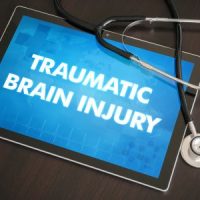Coping with Memory Loss After Suffering a Car Accident-Related TBI

Car accidents are among the leading causes of head trauma in the U.S. Resulting injuries can range in severity from relatively mild concussions to skull fractures and brain hemorrhages that require surgery and could lead to permanent disability. TBIs go hand in hand with a variety of symptoms, but one of the most devastating is memory loss.
Short and Long-Term Memory Loss
Memory loss caused by head trauma generally falls under one of two basic categories:
- Short-term memory loss, which involves difficulty remembering recent events and having a hard time retaining new information; and
- Long-term memory loss, which manifests as difficulty recalling past events, experiencing gaps in one’s personal history, and having trouble remembering skills accumulated over a number of years.
Both types of memory loss can have a significant impact on a victim’s life, making it difficult, if not impossible to follow conversations, remember important dates, and engage in pre-injury activities. Many struggle with maintaining relationships, experience changes in personality, and may be unable to remain employed. All of these issues can have devastating repercussions on a person’s quality of life after an accident.
Medical Care Options for TBI-Related Memory Loss
Memory loss caused by a TBI can be diagnosed and treated, but what that treatment plan looks like will vary based on the specific patient. Before deciding on a method of treatment, neurologists and other specialists will need to conduct a number of assessments, including MRI and CT scans, which will show where the trauma in the brain occurred. Once they have reached a diagnosis, healthcare providers can create a treatment plan that aims to improve the patient’s memory. Treatment could include:
- A prescription medication to enhance cognitive function;
- Cognitive rehabilitation therapy, which uses exercises and activities to strengthen neural pathways;
- Follow-up care to monitor programs and adjust treatment.
Unfortunately, all forms of medical treatment for memory loss tend to be expensive, which can put accident victims in a tough spot financially. Those who can prove that their injury was the result of someone else’s negligence, however, could recover compensation not only for their current treatment, but for any future care that they may require. For instance, even with treatment, many TBI patients still require the help of caregivers, who can provide support with daily activities and medical needs.
Schedule a Meeting With Our Legal Team Today
At Boone & Davis, our experienced legal team is ready to fight for the rights of those who have been wrongfully injured. We know the kind of financial, emotional, and mental toll that memory loss can take on TBI victims and their families and how unfair it is to expect those parties to shoulder the financial burdens of their injuries on their own, especially when they were not to blame for their injury. Call us at 954-566-9919 to speak with one of our experienced Fort Lauderdale traumatic brain injury lawyers about your legal options following an accident for which you were not at fault.
Sources:
ncbi.nlm.nih.gov/pmc/articles/PMC2796352/
ncbi.nlm.nih.gov/pmc/articles/PMC5861722/
